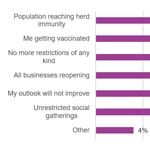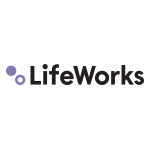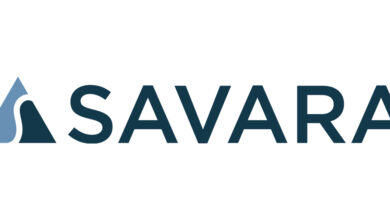Almost half of working Americans want mental-health support; affordability a barrier for some

LifeWorks Mental Health Index™ shows that while Americans are beginning to feel more positive about their mental health, significant work to improve remains
CHICAGO–(BUSINESS WIRE)–LifeWorks Inc., a leading provider of technology-enabled total wellbeing solutions, today released its monthly Mental Health Index™ report, revealing a negative mental-health score among Americans for the thirteenth consecutive month. The Mental Health Index™ score for April is -5.5. Negative scores indicate a lower level of mental health compared to the pre-pandemic benchmark.
The April 2021 score is more than one full point higher than it was March 2021 (-6.8). In April, the majority of sub-scores showed improvement over the previous month. The financial risk sub-score improved the most when compared to March, from +7.0 to +9.3 month-over-month. While this is positive, Americans’ mental health remains at significant risk and well below the pre-pandemic benchmark.
“The United States has reached a positive turning point in recent weeks, with the number of vaccines administered increasing and case counts lowering. The government also recently announced that fully vaccinated Americans no longer need to wear masks in most places, resulting in many feeling a return to their pre-pandemic lifestyle,” said Stephen Liptrap, president and chief executive officer. “While many Americans are feeling more optimistic, employers must remember that mental health in general is still below pre-pandemic levels. A significant proportion of employees are struggling and the impact will continue for some time. The return to the workplace is well underway for many organizations, and not too far for others. Employers need to ensure that employee mental health remains a priority.”
Affordability of mental health care remains greatest concern for Americans
Despite relentless efforts to increase awareness about the long-term implications of declining mental health, many Americans have been reluctant to access mental-health support due to several barriers. To date, only 53 percent of respondents do not feel the need for mental-health support, 35 percent have taken steps to improve their mental health and 12 percent have not taken steps but would like to. Within the latter group, 28 percent report that affordability of care is the greatest barrier to mental-health improvement, followed by having no time to seek care (27 percent), no energy to seek care (21 percent) and uncertainty about the proper care for their needs (21 percent). The research also revealed that individuals identifying as female were most likely to report a lack of time to seek care (28 percent) and lack of energy to seek care (24 percent) as the top barriers, compared to 24 percent and 17 percent of those identifying as male, respectively.
“Americans have become more accepting of conversations regarding mental health. We’re seeing that their propensity to access support, however, is still limited due to significant financial and time barriers,” said Paula Allen, global leader and senior vice president, research and total wellbeing. “People often do not realize the options available to them like their employer-sponsored employee assistance program, health benefits and other sustainable wellbeing solutions. A significant portion of the American population has access to employer-paid mental-health support and many may not be aware. As concerningly, delaying care actually makes things worse and more difficult to deal with in the longer term.”
Anticipation of herd immunity and vaccines improving Americans’ outlook for the future
In April, the research found that more than one quarter (26 percent) of Americans reported that their outlook would be helped by the population reaching herd immunity, followed by 24 percent of employees’ outlook influenced by getting vaccinated against COVID-19 and 21 percent of employees’ looking forward to there no longer being restrictions of any kind. These groups also reported some of the most favorable mental health scores (-3.3, -5.9 and -1.1, respectively).
About the Mental Health Index™
The monthly survey by LifeWorks was conducted through an online survey from March 22 to April 2, 2021, with 5,000 respondents in the United States. All respondents reside in the United States and were employed within the last six months. The data has been statistically weighted to ensure the regional and gender composition of the sample reflect this population. The Mental Health Index™ is published monthly, beginning April 2020, and compares against benchmark data collected in 2017, 2018, 2019. Click here to read the American Mental Health Index™ report.
About LifeWorks
LifeWorks is a global leader in delivering technology-enabled solutions that help clients support the total wellbeing of their people and build organizational resiliency. By improving lives, we improve business. Our solutions span employee and family assistance, health and wellness, recognition, pension and benefits administration, retirement and financial consulting, actuarial and investment services. LifeWorks employs approximately 7,000 employees who work with some 24,000 client organizations that use our services in more than 160 countries. For more information, visit lifeworks.com.
Contacts
Heather MacDonald
LifeWorks
[email protected]
855-622-3327
Angela Pinzon
Kaiser & Partners
[email protected]
647-295-0517






